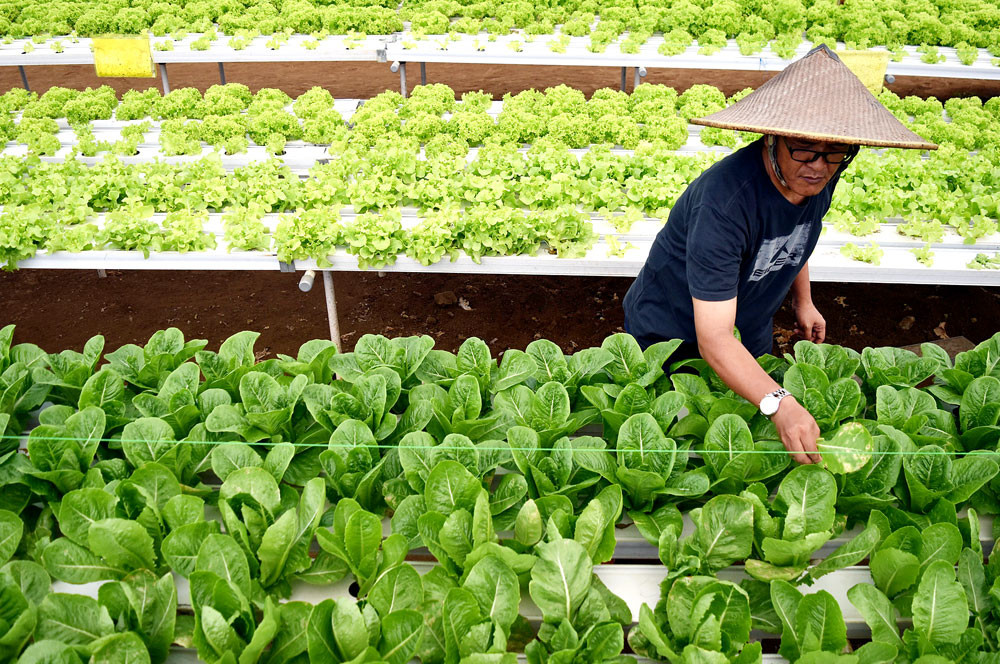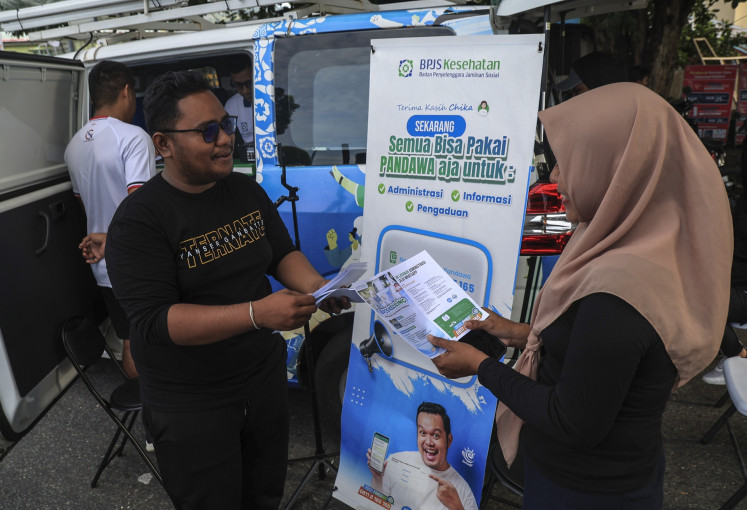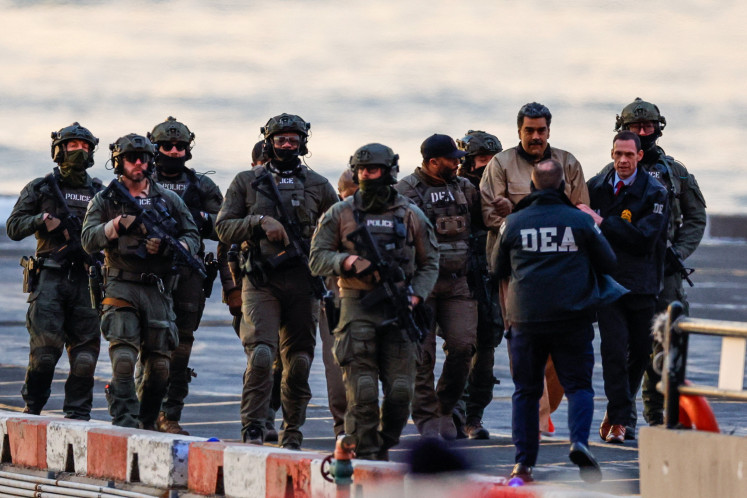Popular Reads
Top Results
Can't find what you're looking for?
View all search resultsPopular Reads
Top Results
Can't find what you're looking for?
View all search resultsThe urgency to boost exports
The government has never been truly serious about removing the biggest hurdle to exports: the acute lack of interministerial coordination in managing regulations and bureaucracy.
Change text size
Gift Premium Articles
to Anyone
T
he US$8.60 billion trade deficit last year, the largest in the past 44 years, seemed to have rudely jolted the government into realizing that there is an urgency to make a more concerted effort to boost exports.
Coordinating Economic Minister Darmin Nasution promised to go all out in reducing bureaucratic barriers to exports. The Trade Ministry’s international trade director general, Oke Nurwan, promised to remove regulatory barriers. However, Shinta Kamdani, a senior executive of the Indonesian Chamber of Commerce and Industry, called for meaningful dialogue between the government and the business community.
We assume that when the government said it would ease the requirements for exports that it was referring to the export of industrial products — not mineral ores that are subject to domestic refining.
Promoting more exports in manufacturing, in addition to increasing oil production and wooing more foreign tourists, is one of the most effective ways of restoring a trade surplus, thereby reducing the big current account deficit, which has been causing downward pressures on the rupiah. A steep depreciation of the rupiah could fuel up a vicious cycle within the economy as a whole.
But we do not yet see any sense of urgency among various government institutions to resolve the export problems. In 2003, then-president Megawati Soekarnoputri set up a special export development task force. However, our exports have continued to depend largely on mining and agriculture-based commodities, the prices of which are highly volatile, according to the international market.
The government has never been truly serious about removing the biggest hurdle to exports: the acute lack of interministerial coordination in managing regulations and bureaucracy.
Exports are part of intersectoral activities. In fact, for exports in manufacturing, the export process itself is actually the end of a long chain of operations that starts with the import of basic materials and components before moving to port handling, transportation, processing and shipping. A handicap in one stage of the chain could adversely affect the competitiveness of exports, either because of delayed delivery or higher prices.
Hence, what is urgently needed is an interministerial team led directly by the President that meets monthly with the leaders of various business and industrial associations to discuss any problems faced in all stages of the export industry.
The team should operate in a sort of war room or nerve center to bring the political leadership face to face with representatives of the business community and bureaucratic agencies so they can discuss and resolve problems with the utmost urgency. The presence of the President at a monthly coordination meeting will keep the participants on their toes as they respond to any issues raised at the meeting.
Any issues related to exports, such as export credit financing, customs clearance and port handling for imports, antibusiness rulings issued by local administrations, smuggling and other crucial reform measures, could be settled quickly on the spot at the highest level of the executive branch.










